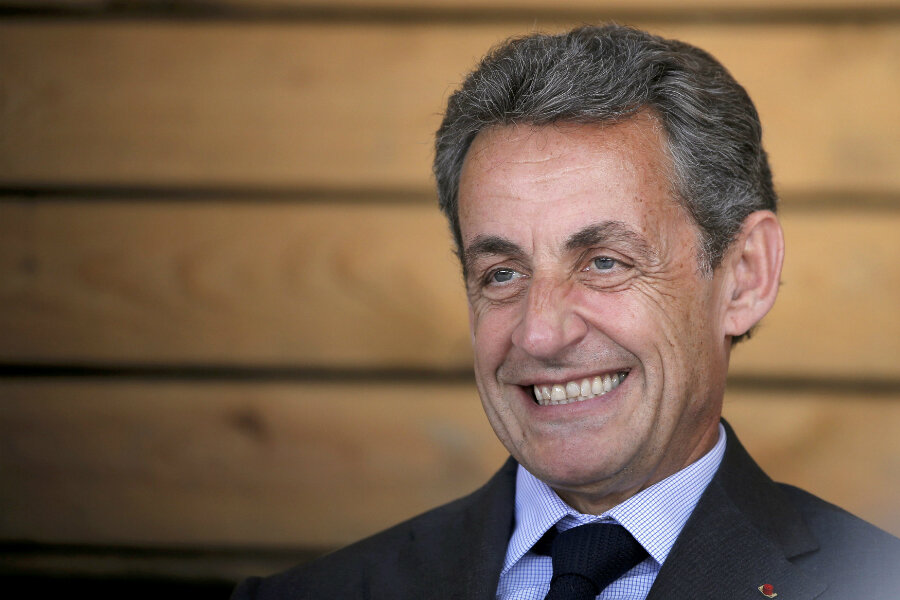He's back: Sarkozy says he'll run for French presidency again next year
Loading...
| Paris
France's former conservative president Nicolas Sarkozy announced Monday he is running for the presidency again in next year's elections, an awaited move that is expected to lead to a tough battle with rivals from his own camp.
In an extract of a book released on his Facebook page and Twitter account, Mr. Sarkozy wrote: "I have decided to be a candidate to the 2017 presidential election."
"I've felt I had the force to wage this battle at a so tormented time of history," he added.
Sarkozy is expected to lead a campaign based on hardline ideas on immigration and security in a country marked by recent attacks carried out by Islamist extremists.
The attacks have prompted a national debate about the place of Islam – France's No. 2 religion – in a strictly secular society. With his strategy, Sarkozy hopes to grab some votes from the far-right National Front, whose leader Marine Le Pen has already announced her candidacy for the presidency.
In recent interviews, Sarkozy has said he wants to widen the 2004 ban on the Muslim headscarf in public schools to also include universities. In the name of secularism, he has also said he opposes pork-free options proposed by many school canteens for Muslim and Jewish children, and he has suggested that children born in France to parents staying illegally in the country shouldn't be granted French nationality.
Sarkozy must first win the primaries organized by the French right in November where he's expected to face tough competition.
The former prime minister under Jacques Chirac in the 1990s, Alain Juppe, 71, is the current favorite in the polls. Other contenders from the conservative party include Sarkozy's own former prime minister, Francois Fillon.
Sarkozy lost the presidential election to Socialist Francois Hollande in 2012 after his first term.
When he left the Elysee Palace, he said he was leaving politics and would find a different way to serve his country.
Yet he made a successful comeback in 2014, winning the leadership of the conservative party, known at the time as the UMP. He explained he was moved to return to politics by the "hopelessness, anger and lack of future" that he sensed among the French. Since then the party changed its name to "the Republicans."
Since 2010, Sarkozy's name has been mentioned in several legal cases relating to corruption and influence-peddling, but he has never been convicted of wrongdoing or been sent to trial. Last February he was handed preliminary charges for suspected illegal overspending on his failed 2012 re-election campaign.
The French presidential election will take place in two rounds in April and May next year.
The race remains wide open with primaries to be organized by the left in January. Unpopular Hollande has not said if he will run for re-election.







